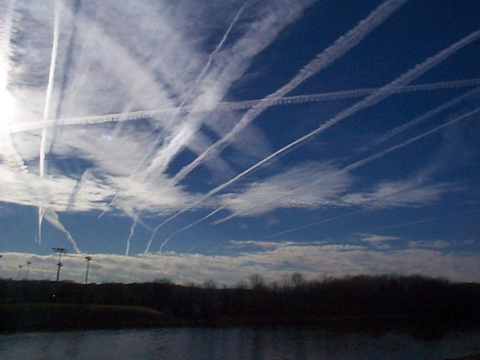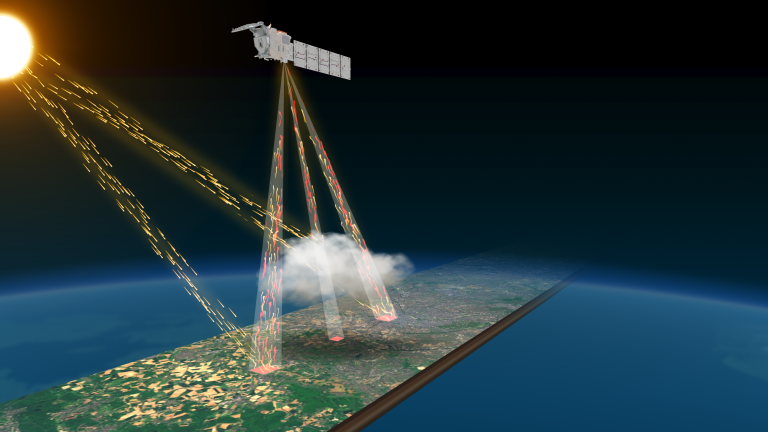
Energy and Water Cycles
Quantifying how the interplay between the energy and water cycles is changing as our climate warms is critical across scales: from constraining global climate predictions to understanding the processes behind localised extreme precipitation responses.
Our work exploits cutting-edge satellite missions, theoretical models and data assimilation to understand the processes that control energetic exchanges within the atmosphere and across its surface and space boundaries. This focuses on how these are influenced by and themselves influence key components of the water cycle.
By improving our understanding of the underlying physical processes that control the couplings between the energy and water cycles we will enhance longer-term predictive capability, including for high impact events such as floods and droughts. This should allow better policy decisions aimed at ensuring climate resilience.
Understanding how the Earth’s energy and water cycles are responding to climate change is critical, not just for global temperature evolution but also at a much more localised scale, with strong implications for food and water security.
Professor Helen Brindley
NCEO Divisional Director of Energy and Water Cycles, based at Imperial College London.
Key research groups
This theme brings together NCEO scientists working at the Centre for Ecology and Hydrology, Imperial College London, RAL Space, University of Leicester, University of Oxford and University of Reading. Each group has specific areas of expertise that complement each other in building up a holistic view of the energy and water cycles.
We work closely with researchers at the Met Office and the European Centre for Medium-range Weather Forecasts (ECMWF) to ensure that our work improves weather and climate modelling capabilities. We also have strong links to the European Space Agency through our roles on Mission Advisory Groups.
Research priorities
- Delivering much needed insight into key aerosol-cloud-precipitation processes leveraging new satellite observations.
- Investigating how opening a ‘far-infrared’ window can benefit our knowledge of ice cloud, water vapour and surface emissivity.
- Discovering whether changes in the energy and water cycles can be used as an emergent constraint, reducing the uncertainty in future model predictions using today’s observations.
- Evolving our integrated Data Assimilation informed observation-model framework to couple the energy-water and carbon cycles.
Our current work includes
- Performing critical calibration-validation activities for ESA’s EarthCARE mission: do retrieved cloud and aerosol properties match in-situ observations?
- Identifying robust observed changes in the Earth’s energy and water cycles and assessing climate model deficiencies.
- Preparing for the FORUM mission by developing prototype instruments and retrieval algorithms and participating in relevant field campaigns.
- Investigating the role of the water cycle in influencing methane emissions.






